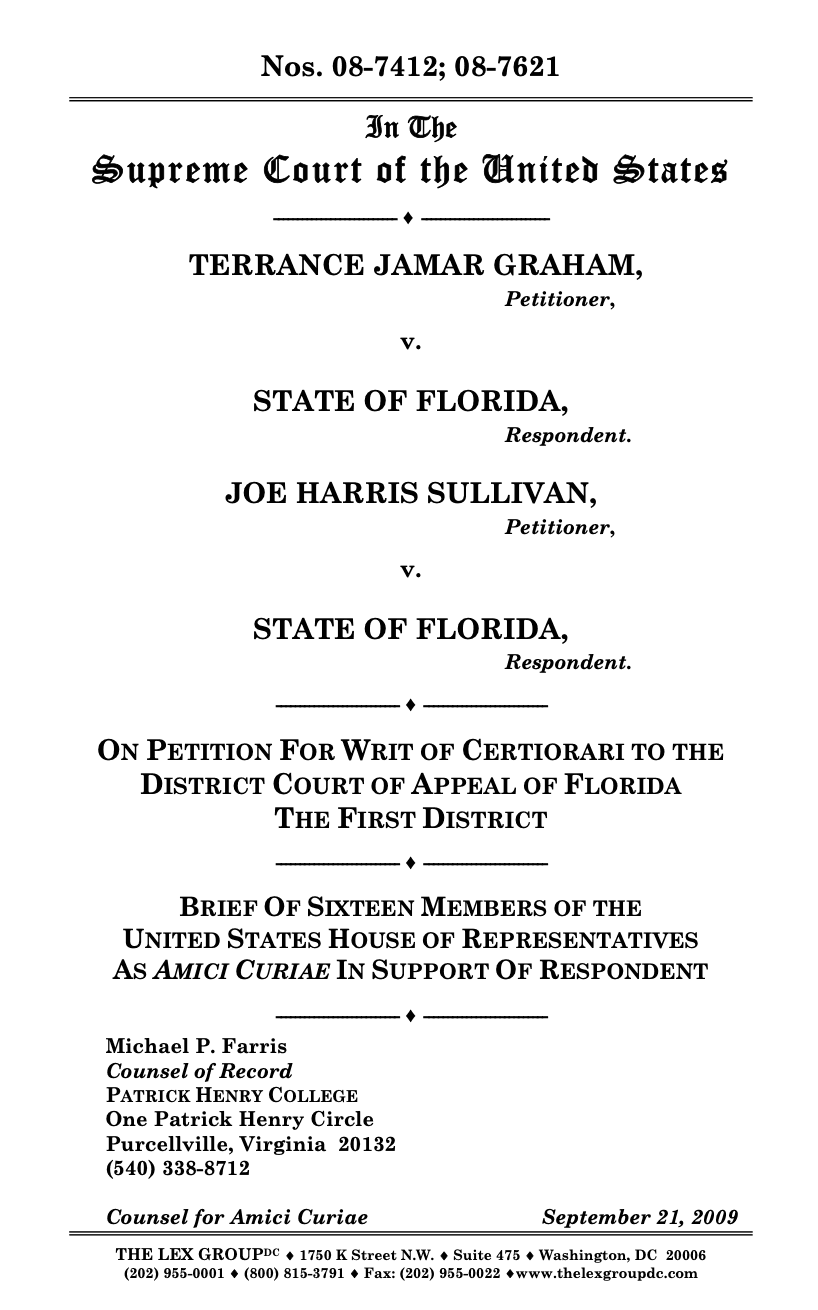
Summary of Argument
Amnesty International and a number of other international amici have submitted a brief (hereinafter International Amici) which argues that the State of Florida is prohibited by certain international legal obligations from imposing a sentence of life in prison without parole (LWOP) on a juvenile. This brief is submitted in direct response to the International Amici and the limited arguments concerning international law made in the briefs of the petitioners and a small number of other amici. The assertion that the United States is the only nation on earth that permits the sentencing of juveniles to life in prison without parole is false. Moreover, the International Amici have not given this Court a comprehensive or accurate description of the juvenile sentencing laws in other nations.
The amici’s theory that the United States is bound to obey the provisions under Article 37 of the United Nations Convention on the Rights of the Child under the principle of jus cogens is without factual or legal foundation for at least three reasons:
• The jus cogens doctrine has no agreed elements or standards.
• Jus cogens has no application outside the invalidation of an offending treaty.
• The prohibition against juvenile life imprisonment does not satisfy the criteria for customary international law because there is no evidence that Article 37 reflects the general international practice of juvenile sentencing or that the other nations of the world feel legally compelled to obey its dictates.
The United States has taken reservations to the other treaties cited by the International Amici that render them inapposite to this case. Finally, we respectfully suggest that the use of international law to attempt to govern the people of the United States violates both the letter and spirit of our Constitution as well as the recognized international human rights principle of self determination.